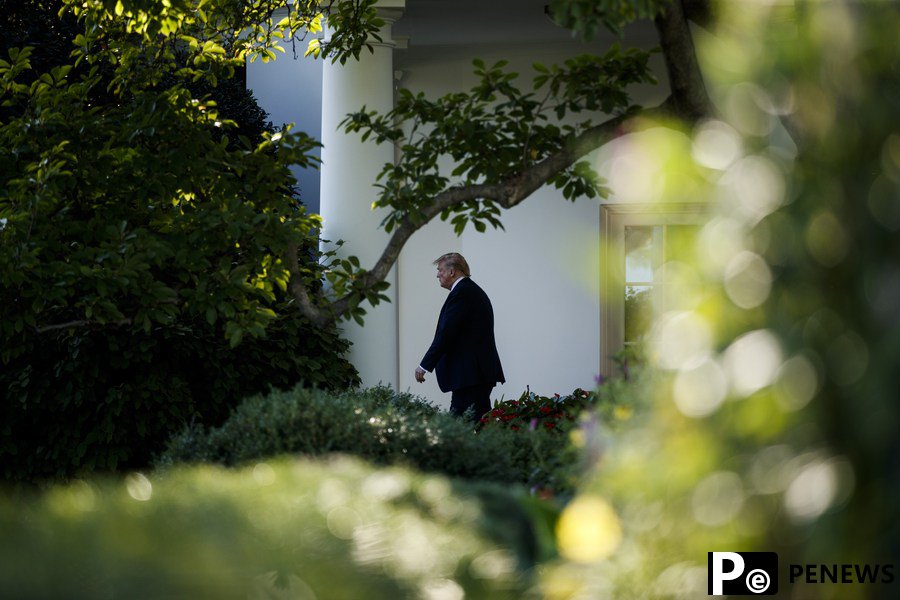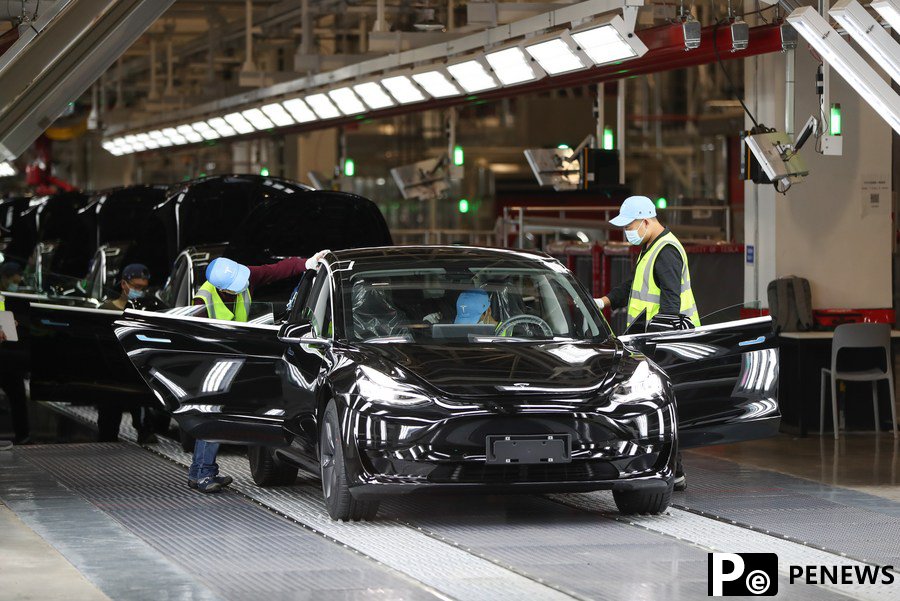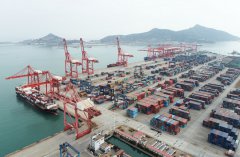Home>>
Biden would do world a favor by dumping Trump’s trade practicesBy Dennis Meng (People's Daily Online) 15:44, April 14, 2021

There are two items that just won’t fit Republicans’ or Democrats’ narratives of imposing tariffs on China: campaign hats and surgical masks. One is a symbol of the past, gone with the twice-impeached former president, and the other is a daily necessity, shielding us from the still rampant virus.
Those dead and gone campaign hats (yes, many were indeed produced in China), however, together with over 43 billion masks China exported to America from March to February represent only a tiny fraction of the complex trade ties between the world’s two largest economies. Behind the tip of the iceberg is a lose-lose battle, unilaterally chosen by the U.S., that will continue to damage the already vulnerable world economy.
Tariff gamble crumbles
For a long time, the Trump administration had based its whimsical tariff practices on a false hope that they would reverse America’s trade deficit and bring jobs back home. But the statistics told a different story.
A U.S. Census Bureau report showed that the US goods trade deficit “reached a record of $915.8 billion in 2020”, a surge of $51.5 billion (6.0% year-on-year), following former U.S. President Donald Trump’s relentless imposition of tariffs against China and many American allies, including Canada and the EU.
A study commissioned by the U.S.-China Business Council (USCBC) also suggested that the trade friction “caused a peak loss of 245,000 U.S. jobs” and “a gradual scaling back of tariffs on both sides would boost growth and lead to an additional 145,000 jobs by 2025”.
In fact, the job losses and deficit spikes were a lesson that repeated itself. One needs to look no further than the George W. Bush administration era, during which an 8 to 30 percent tariff on certain steel products from all countries except Canada, Israel, Jordan, and Mexico cost the U.S. nearly 200,000 jobs in the steel-consuming sector, larger than the entire number of employed (187,500) in the steel sector itself at the time.
Just like back in 2002, when the vast majority of steel-consuming manufacturers were actually small companies, which bore the brunt of the tariffs, it was those everyday consumers and small businesses that suffered the most from Trump’s tariff carpet bombing.

Former U.S. President Donald Trump leaves the White House in Washington, D.C., the United States, on Aug. 30, 2019. (Photo by Ting Shen/Xinhua)
Since China’s entry into the WTO, the prices of many consumer goods--ranging from washing machines, televisions, and PCs to Christmas decorations, toys, and clothing--have taken a sharp decline, giving American consumers more options to choose from. Thanks to the efficient value chain and fast global shipping services (many only realized their importance after the grounding of Ever Given in the Suez Canal), families in Anchorage, Alaska can buy decorations for Christmas Eve some 4,461 miles away in Yiwu, east China’s Zhejiang Province, which produces around 80% of the world’s Christmas decorations.
The COVID-19 pandemic has also served as a deep reminder that Chinese products are inextricably intertwined with the global market. Back in March 2020, a 30-pack of 3M's N95 mask was sold on U.S. Amazon for $199.95 and still in short supply while states were grappling to procure scarce PPEs and ventilators. At a time when American manufacturers were struggling to meet demand, China made an average of 40 masks for every person around the globe, according to a Bloomberg report.

Employees work at the Tesla Gigafactory in Shanghai, east China, Nov. 20, 2020. (Xinhua/Ding Ting)
American conglomerates have also been profiting greatly from the Chinese assembly line and the vast, lucrative market. In January 2021, Tesla Giga Shanghai (also known as Gigafactory 3) started to deliver its brand-new Tesla Model Y, an electric compact crossover utility vehicle (CUV). Currently, with a production rate of 3,000 cars a week, Tesla sells one in three of its electric cars in China. The Apple Bucket, a term used by Chinese netizens for the whole set of Apple products after the KFC Bucket, is yet more proof that made-in-China has already been written into the DNA of American products, something which has long been taken for granted.
Trump’s tariff gamble was based on a misconception that American consumers could wean themselves off Chinese products and swallow a chunk of the tariffs by paying more for local goods, that more demand for domestic products would create more jobs, and that American companies could soon find alternative suppliers and buyers and live happily ever after. But the sad truth is that salaries aren’t growing with the price tags, especially during a time when millions of households are waiting for relief bills to make ends meet, no well-trained workers are ready to be deployed for gigantic production tasks, and that such an advanced supply-chain is nowhere to be found other than in one of America’s largest trading partners…








